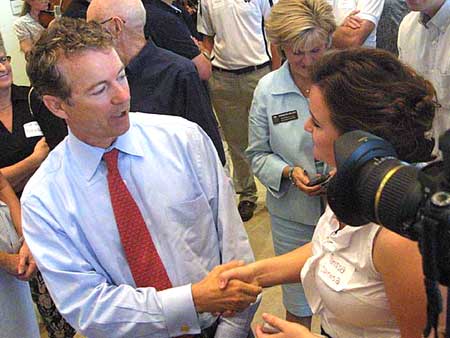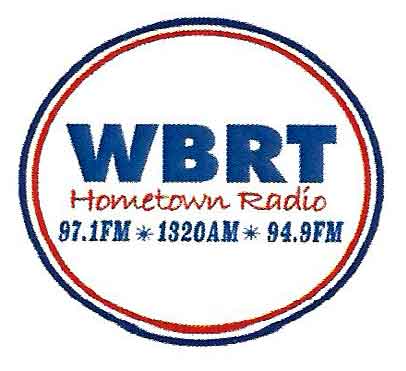Sen. Rand Paul says Beshear ‘drunk with power’ in handling of virus lockdown

By JIM BROOKS
Nelson County Gazette / WBRT Radio
Friday, May 1, 2020 — The cure for the nation’s economy in the wake of the Coronavirus pandemic isn’t the federal government printing more money and giving it away.
In a special interview Friday with WBRT set to air on “Bradford & Brooks” this Wednesday, U.S. Sen. Rand Paul said that the solution to the country’s economic woes is simply to allow businesses to reopen — and the sooner the better.

Paul said the federal government’s Coronavirus relief programs were “a threat to our national security to be so far in debt.”
Before the pandemic, it was typical for the federal government to spend $1 trillion more than the revenues the country brought in.
“We get about $3 trillion, which is a lot of money, but we spend about $4 trillion, which includes Social Security, Medicaid, Medicare, food stamps and a host of other things as well as defense,” Paul said. “But now we’ve added another $3 trillion, and soon that will be $4 trillion.”
Paul said he understands the severity of the economic damage to the country, but said that damage was largely created by our own government.
“There really isn’t money there to give people,” he explained. “We have to open the economy, this can’t go on.”
For those at risk, precautons like social distancing are appropriate measures.
CRITICAL OF GOVERNOR. Paul was critical in his comments about Kentucky Gov. Andy Beshear’s handling of the Coronavirus and his orders closing down so many businesses.
“We’ve got a governor who is sort of drunk with power, and he’s deciding all the rules for opening your business, and its like ‘Who made him economic czar?” Paul said. “It’s a real big mistake to put so much power in a single person’s hands.”
RELIGIOUS FREEDOM. Paul was also critical of Beshear for how he handled churches that went forward with in-person services after he banned large groups from meeting.
“The governor basically threatened them with home arrest,” he said. “I think it was an insult. I can’t think of anything more unAmerican or unconstitutional than telling someone they can’t go to church.”
Paul said the authorities failed to investigate the measures church members took inside the church to be safe.
“From my understand, it was like 20 people and they were sitting 20 feet apart,” he said. “That really something that individuals must decide. I think its wrong to single out religion.”
Paul said he has faith that the medical research will come up with a vaccine for COVID-19 within the next year.
ONE SIZE DOESN’T FIT ALL. Paul said that we have more information about the virus that supports his recommendation that parts of the country can allow businesses to reopen — a decision that should be done locally, simply because the conditions in a rural part of Kentucky isn’t the same as the conditions in one of the population centers.
We know now that a significant number of people who test positive for the Coronavirus never have symptoms, he said. When Paul tested positive for the Coronavirus, he said he never had symptoms.
“I had no cough, no fever, no body aches — I would have never gone to the doctor,” he said. “What we’re finding out is that there are millions of people like me.”
This means a lot of people who have or had the virus never sought testing and were never counted as “postive.” What this does is reduce the overall death rate of the Coronavirus.
The adjusted death rate is still worse than the seasonal flu, but not nearly as severe as the 1918 Spanish flu.
Those who die from the Coronavirus tend to be older Americans; in New York, no one under 18 died from the virus.
“The other good news is that from age 18 to 45, the mortality rate was 10 out of 100,000 — that’s .01 percent,” he said. “That includes a lot of our country’s workforce.”
Paul said that it would make sense to get members of the workforce under age 45 back to work since research shows they are at a much lower risk that those over age 45, and particularly those over age 60.
Older Americans with greater risk of the virus should be protected, he said.
-30-






